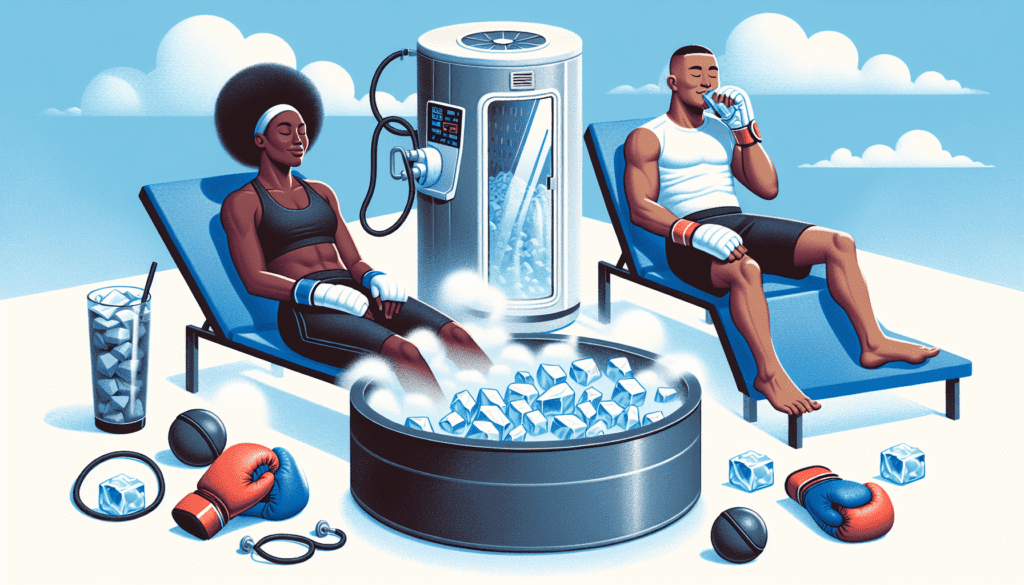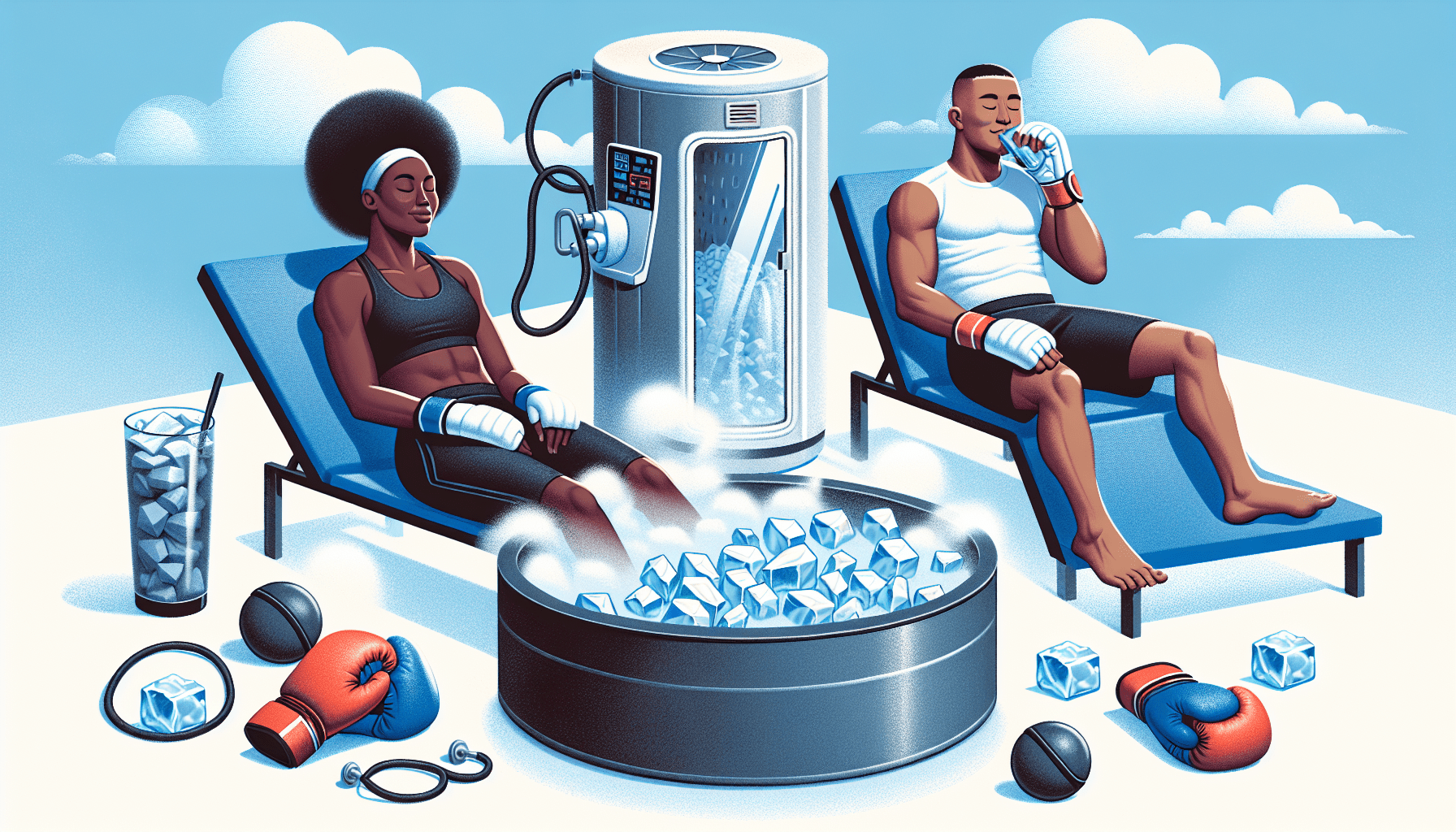You’re passionate about MMA, and after an intense sparring session, your body needs some serious TLC to bounce back. In “Top Ways To Recover From Intense Sparring Sessions in MMA,” you’ll explore effective strategies to speed up your recovery and ensure that you’re always at peak performance. From proper nutrition and hydration to advanced techniques like cryotherapy and active recovery, this guide covers all the essentials to help you feel revitalized and ready for your next bout. Have you ever finished an intense sparring session in MMA only to feel completely drained, sore, and perhaps even a bit overwhelmed? If so, you’re not alone. Sparring is a critical component of MMA training, but it can take a significant toll on your body. Proper recovery isn’t just about resting; it’s about rejuvenating your entire system so you’re ready to get back in the ring stronger and more resilient.
In this article, we’ll explore the top ways you can recover from intense sparring sessions in MMA. Whether you’re a seasoned fighter or a beginner, these tips will help you optimize your recovery process, ensuring you stay at the top of your game.

Understanding the Importance of Recovery
Why Is Recovery Essential?
Before diving into the how-to, let’s first understand why recovery is essential. Your muscles, nervous system, and even mental state take a beating during intense sparring sessions. Recovery isn’t just about healing; it’s about rebuilding stronger than before. By focusing on recovery, you’re essentially preparing your body for the next challenge, reducing the risk of injury, and enhancing overall performance.
Physical Recovery Strategies
Cool Down Properly
A proper cool-down routine can be the difference between feeling sore for days and bouncing back quickly. Spend at least 10-15 minutes doing low-intensity exercises like light jogging or dynamic stretches. This helps in gradually lowering your heart rate and reducing the buildup of lactic acid.
Stretching and Flexibility Exercises
Engaging in stretching exercises post-sparring can aid in muscle elongation and reduce stiffness. Try to incorporate both static and dynamic stretching exercises into your routine. Hold each stretch for at least 30 seconds to get the most benefit.
Hydration Is Key
After an intense session, your body is usually dehydrated. Replenishing fluids as soon as possible is vital. Aim for water and consider adding electrolytes if the workout was especially grueling.
Table: Hydration Tips
| Tips | Description |
|---|---|
| Drink Water | Start with plain water immediately after sparring. |
| Electrolytes | Use electrolyte tablets or drinks for better recovery. |
| Avoid Alcohol | Alcohol dehydrates you further; avoid post-training. |
Nutrition for Recovery
Proper nutrition can jumpstart your recovery process. Your post-sparring meals should include a balance of proteins, carbohydrates, and healthy fats. Proteins help in muscle repair, while carbohydrates replenish glycogen stores.
Post-Sparring Meal Example
| Nutrient | Food Options |
|---|---|
| Protein | Chicken, Fish, Tofu |
| Carbohydrates | Brown Rice, Sweet Potatoes, Quinoa |
| Healthy Fats | Avocado, Nuts, Olive Oil |
Ice Baths and Cold Therapy
If your body feels particularly sore, ice baths can help reduce inflammation and speed up recovery. Aim for about 10-15 minutes in a cold tub at around 50-60 degrees Fahrenheit.
Sleep and Mental Recovery
The Power of Quality Sleep
One of the most underestimated recovery techniques is getting adequate and quality sleep. Aim for 7-9 hours of sleep per night. Sleep is when your body does most of its repair work, including muscle regeneration and neural recovery.
Mindfulness and Meditation
Your mental state can significantly affect your physical recovery. Practices like mindfulness and meditation can reduce stress levels, increase focus, and aid in overall mental clarity, making you more prepared for the next session.
Active Recovery Days
Instead of completely resting, consider having active recovery days where you engage in low-intensity activities like yoga, swimming, or walking. This helps in maintaining blood flow without putting too much strain on your body.
Professional Recovery Techniques
Massage Therapy
Regular massage therapy can help alleviate muscle soreness, improve circulation, and enhance flexibility. Opt for sports massages tailored to the needs of an MMA athlete.
Physical Therapy
If you feel that your body isn’t recovering as it should, consulting a physical therapist can be beneficial. They can provide specialized treatments like ultrasound therapy, electrical stimulation, or targeted exercises.
Chiropractic Care
Chiropractic adjustments can help in realigning your spine, alleviating muscle tension, and improving overall mobility. It’s a beneficial addition to your recovery regime.
Use of Foam Rollers
Foam rolling can be a great way to perform self-myofascial release, which helps in reducing muscle tightness and improving range of motion. Spend 10-15 minutes focusing on the major muscle groups used during your training.

Supplements and Hydration
Key Supplements for Recovery
While a balanced diet is crucial, sometimes supplements can provide that extra edge in recovery. Consider incorporating:
- Protein Powders: Enhance muscle repair.
- BCAAs: Help in muscle recovery and reduce soreness.
- Omega-3 Fatty Acids: Reduce inflammation.
- Magnesium: Helps with muscle relaxation and reduces cramps.
Hydration: It’s More Than Just Water
While water is crucial, sometimes you need more to bounce back. Electrolyte drinks can replenish the essential minerals like sodium, potassium, and magnesium lost during intense training.
Table: Recommended Supplements for Recovery
| Supplement | Purpose |
|---|---|
| Protein Powders | Enhance muscle repair |
| BCAAs | Aid in muscle recovery |
| Omega-3 | Reduce inflammation |
| Magnesium | Promote muscle relaxation and reduce cramps |
Embracing a Holistic Approach
Nutrition Planning
Creating a meal plan tailored to your training schedule can ensure that you’re getting the right nutrients when you need them the most. Consult a sports nutritionist for personalized advice.
Mental Wellness
Incorporate practices that focus on mental health, like journaling your training sessions and recovery progress. This helps in staying motivated and focused.
Social Support
Being part of a community that understands the demands of MMA can provide emotional support. Whether it’s your gym buddies or an online forum, sharing your experiences can be incredibly uplifting.
Conclusion
Recovering from intense sparring sessions in MMA is a multifaceted process. It involves proper physical care, mental relaxation, professional therapies, and a balanced diet. By embracing a holistic approach, you’ll not only recover faster but also improve your overall performance. Remember, recovery is just as important as training. Make it a priority, and you’ll see remarkable improvements in your strength, flexibility, and mental resilience.
So, the next time you step out of an intense sparring session, remember these tips, take care of your body, and get ready to come back stronger, faster, and more focused than ever before. Happy training!

